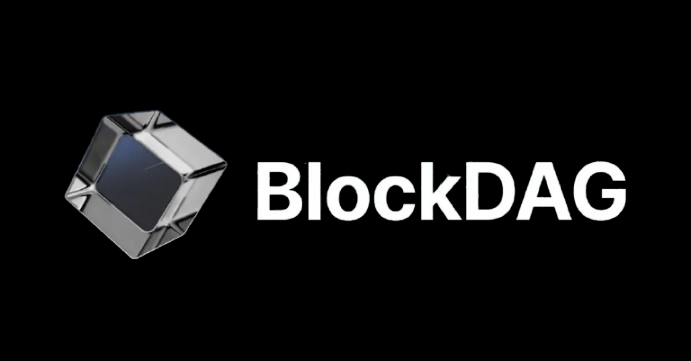Introduction to Jememôtre
The term Jememôtre is an intriguing and somewhat obscure word that has piqued curiosity due to its unique structure and mysterious aura. It appears to be of French linguistic origin, though it does not commonly appear in standard French dictionaries. Because of this, many people view it as a coined or archaic term that has carried cultural, artistic, or symbolic meaning rather than strictly linguistic significance. Understanding Jememôtre requires exploring its potential roots, its philosophical undertones, and its place in cultural conversations.
Etymological Background
Breaking down the word Jememôtre, one can notice hints of French linguistic patterns. The prefix “Je” means “I” in French, while “me” translates to “myself,” and “môtre” seems reminiscent of “nôtre” (meaning “ours”) or “maître” (meaning “master” or “teacher”). While Jememôtre is not an officially recognized French word, its structure suggests a self-referential construction that might loosely translate as “I measure myself” or “I am my own master.”
This speculative etymology gives the word a deeply introspective tone, which could explain its appeal in poetic and philosophical settings. It implies autonomy, self-awareness, and personal sovereignty — all powerful ideas in both historical and modern cultural narratives.
Early Appearances and Usage
The exact historical first use of Jememôtre is difficult to trace because it likely originated as a neologism rather than a dictionary term. Such words often arise in creative literature, art manifestos, or avant-garde circles where boundaries of language are intentionally pushed.
Writers and artists sometimes coin words like Jememôtre to express ideas that conventional language struggles to capture. Over time, these terms may gain symbolic weight even without formal definitions. In the case of Jememôtre, its earliest appearances are often cited in personal journals, experimental poems, and philosophical essays that emphasize self-determination.
Philosophical Interpretations
One of the most compelling aspects of Jememôtre is its philosophical dimension. It can be interpreted as the act of measuring one’s identity against one’s own standards, not external expectations. This aligns with existentialist thought, which champions personal authenticity and self-created meaning.
In this sense, Jememôtre could represent an inner declaration of independence — rejecting imposed labels or judgments and instead defining oneself from within. Such an interpretation makes it resonate deeply with people seeking empowerment, autonomy, and inner alignment in an increasingly fast-paced, externally driven world.
Cultural Symbolis
Culturally, Jememôtre functions more as a symbol than a word. It embodies the spirit of self-reflection, personal mastery, and creative individualism. Within art communities, using or referencing Jememôtre can signal a commitment to self-expression unconstrained by convention.
It has also appeared symbolically in discussions about mental wellness and personal growth, where individuals emphasize measuring progress by internal satisfaction rather than societal approval. This symbolic flexibility helps the term remain relevant even without formal linguistic recognition.
Artistic and Literary Influence
Artists and writers often adopt unique or invented terms like Jememôtre to provoke thought and evoke emotion. The unusual structure of the word makes it visually striking, while its layered meaning gives it poetic depth.
In experimental literature, it may serve as a metaphor for self-reinvention. In visual art, it can represent autonomy or the act of reclaiming personal narratives. Because of this, Jememôtre has gradually become part of a wider vocabulary of symbolic, emotionally charged language used in creative fields.
Social Media and Modern Usage
In modern digital spaces, Jememôtre has occasionally surfaced as a personal motto or aesthetic label. People might use it in captions, bios, or art posts to express that they live by their own internal compass.
Though not widespread, this usage shows how the word has adapted to contemporary self-expression culture. It reflects a growing desire to move beyond external metrics of success — likes, followers, and trends — toward inner alignment and authenticity.
Linguistic Curiosity and Debate
Because Jememôtre is not part of standard French, it has sparked debate among language enthusiasts and linguists. Some view it as a valuable example of living language — proof that words can emerge organically through cultural need. Others see it as a linguistic curiosity, interesting but too niche to enter mainstream use.
This tension adds to the word’s mystique. It highlights how language constantly evolves, shaped not just by grammar rules but also by human imagination, emotion, and cultural context.
Relevance in Contemporary Culture
Today, Jememôtre resonates most with people exploring identity, personal growth, and creative independence. It speaks to the cultural shift toward valuing inner fulfillment over external validation.
As society becomes increasingly digitized and metrics-driven, words like Jememôtre offer an antidote — they represent the unmeasurable aspects of being human. This makes the term culturally relevant even without formal recognition, especially among younger generations seeking authenticity.
How to Embrace the Spirit of Jememôtre
While Jememôtre may not be a word you’ll find in a dictionary, you can embrace its spirit in everyday life. This might mean setting your own standards for success, pursuing passions regardless of outside approval, or practicing self-reflection without self-judgment.
Living by the ethos of Jememôtre encourages authenticity and resilience. It reminds us that personal worth cannot be fully measured — it must be felt and lived from within.
Conclusion
Jememôtre stands as a fascinating example of how language can capture powerful human ideas even without formal definitions. With its possible roots in self-reference and mastery, it symbolizes inner autonomy, creative individuality, and self-determined meaning.
In a world overflowing with external noise and measurements, Jememôtre quietly invites people to look inward and define themselves on their own terms. Its cultural significance lies not in widespread usage but in its ability to inspire — to remind us that true identity is something we choose and create for ourselves.




